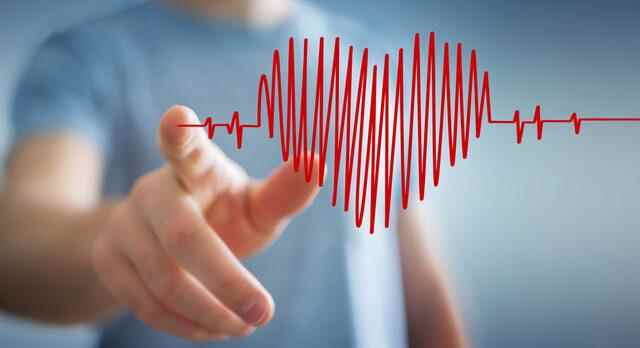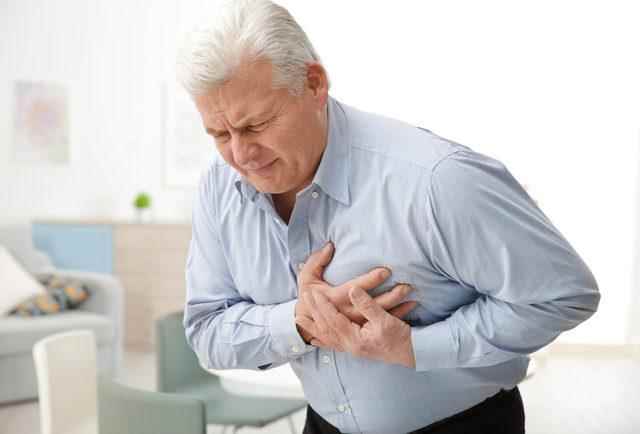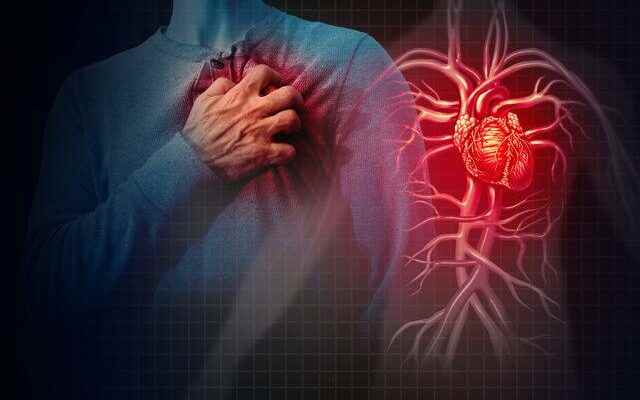Heart failure continues to be an important health problem in our country as well as all over the world. So much so that survival rates in heart failure are lower than some types of cancer, such as prostate, breast and bowel. Although heart failure is a dangerous problem, it can actually be brought under control thanks to early diagnosis and treatment, thus increasing the quality of life of patients and extending their life span.
6 WRONG FAITH ABOUT HEART FAILURE!
Acıbadem Fulya Hospital Cardiology Specialist Prof. Dr. Bekir Sıtkı Cebeci pointed out that incorrect information about heart failure, which is believed to be correct in the society, can prevent early diagnosis and treatment, and told 6 false information that is thought to be true; made important suggestions and warnings!
Heart failure is a disease. FALSE!
FACT: Contrary to popular belief, heart failure is not a disease, but a consequence of various diseases. Cardiology Specialist Prof. Dr. Bekir Sıtkı Cebeci lists the main reasons that lead to deterioration of heart functions and heart failure as follows:
- Cardiovascular diseases (with or without a heart attack)
- Heart muscle diseases (impaired contraction and relaxation function of the heart)
- Diseases of the heart valves (stenosis or regurgitation)
- congenital heart diseases
- Various rhythm disorders
- Hypertension, diabetes, thyroid problems (hypo-hyperthyroidism), toxic chemicals (alcohol, various drugs…)

Heart failure complaints are the same in every patient. FALSE!
FACT: Complaints and findings may not be the same in every patient with heart failure. Cardiology Specialist Prof. Dr. Bekir Sıtkı Cebeci says, “While the complaints are less in some patients compared to the level of heart function, they can be more severe in others,” and continues: Palpitation-pulse irregularity and chronic cough are the main complaints and findings of heart failure. Depending on the degree of insufficiency, some or most of these complaints may develop in patients.

I can tell if there is heart failure by looking at my complaints. FALSE!
FACT: Some of the symptoms that develop in heart failure can also be seen in other diseases. For example, shortness of breath, weakness and fatigue problems; Apart from the heart, it can also occur in lung, blood and muscle diseases. Edema-weight gain can also cause kidney and thyroid diseases. Cardiology Specialist Prof. Dr. Bekir Sıtkı Cebeci, pointing out that our complaints should be interpreted by the doctors of the relevant branches, gives the information: “In order to diagnose heart failure, besides physical examination, cardiac catheterization is performed with echocardiography, cardiac MRI, blood tests and, if necessary, coronary angiography.”

My complaints went away with treatment. In this case, I can stop my medication. FALSE!
FACT: “Removal of complaints with treatment does not mean that the patient has recovered. Therefore, quitting drugs is an extremely wrong behavior. Dr. Bekir Sıtkı Cebeci said, “In some cases, even if the heart failure is cured with the treatment of the underlying cause, the disease processes continue in most cases. If the balance is achieved with drugs and the treatment is left uncontrolled after the complaints and symptoms of heart failure disappear, the failure picture will recur. Even if changes are made, the treatment continues for life.” Stating that today, there are modern and effective drug treatments that relieve complaints and control the underlying processes, Cardiology Specialist Prof. Dr. Bekir Sıtkı Cebeci, in addition to these, some patients suffer from a deadly rhythm that increases the contraction efficiency of the heart. Prof. Dr. Bekir Sıtkı Cebeci states that this way, both the quality of life of the patients and their life span are extended.

The sexual life of heart patients ends. FALSE!
TRUTH: “On the contrary, a regular sex life is very important for general health, and this is also true for heart patients,” Prof. Dr. Bekir Sıtkı Cebeci continues: “Sexual life should continue after cardiac events such as heart failure, myocardial infarction, bypass operation and stent. Restriction of sexual activity is sufficient for 2 weeks after the infarction, and for 6-8 weeks after the by-pass operation, depending on the patient’s condition. After this period, it is liberalized considering the individual performance and clinical picture of the patient. Dr. Bekir Sıtkı Cebeci emphasized that the effort spent in sexual activity is equivalent to climbing 2 flights of stairs or walking briskly for 20 minutes on a flat road, and said, “Patients who do these activities without any problems and complaints are considered suitable. In addition, the effort stress test to be done in the hospital environment also helps in decision making. prof. Dr. Bekir Sıtkı Cebeci states that various sexual dysfunctions may occur in patients due to both drugs used and heart disease, and in such cases, necessary treatment arrangements can be made and support can be obtained from other branches such as Urology and Obstetrics.
If pain occurs during intercourse, all patients can take a sublingual vasodilator. FALSE!
FACT: If there is chest pain during sexual intercourse, patients who have used erectile dysfunction drugs should definitely not take drugs containing sublingual nitroglycerin, because serious fatal low blood pressure can occur. Cardiology Specialist Prof. Dr. Bekir Sıtkı Cebeci stated that in this case, it would be sufficient to interrupt sexual activity and said, “If the complaint passes, the relationship can be continued at a lower pace. He says that if it does not pass, a health institution should be applied. If the patient is not using this type of medication, he can use sublingual nitroglycerin in case of chest pain. I recommend that the patient discuss all these issues openly with his doctor.” says.
LIFE SAVING TIPS
Since heart failure patients are in the increased risk group, they should be protected from infections. Therefore, it is recommended that patients be vaccinated against pneumonia, influenza and Covid.
Seasonal effects are important for heart failure patients. Therefore, strenuous physical activity should be avoided in very hot and cold weather.
Clothing should be suitable for summer and winter. For example, thin light-colored non-perspiring clothes should be worn in hot weather, and thick-protective clothing should be worn in winter.
Attention should be paid to a healthy and adequate diet. Sufficient fluids should be consumed and alcohol and caffeinated beverages should be avoided. The salt content in the diet should be reduced, and the personalized diets determined by the coordination of the cardiologist and dietitian should not be interrupted.
The patient’s treatment discipline should be good. Health check-up should be done regularly. For emergencies, the patient and the household must have an action plan. In emergencies, 112 or other private emergency health services should be applied to.
The coordinated approach of the patient, family and health system increases the quality and duration of life.
